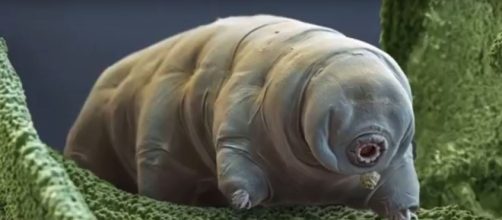A recent study has been published to reveal some information about “tardigrades.” The study was published in the journal for PLoS Biology. According to the study, “tardigrades” are believed to be the toughest animal on Earth and almost indestructible since it can survive the extremes of weather from freezing, radiation, and scorching temperatures. In addition, these tough creatures can also surpass vacuum spaces and can live in a very small space
Features of “tardigrades”
The information that the researchers of PLoS Biology have come up was a result after conducting an experiment with two “tardigrades.” They found out that during dry seasons the creature has the genes to create the protein that replaces missing water in cells.
Moreover, the researcher had also found out that the creature produces set of protein that can protect their DNA causing to withstand radiation.
These tiny near microscopic creatures that are less than a millimeter in size are also called “water bears” or “moss piglets” that can live almost anywhere. They prefer to live in sediment at the bottom of lake areas like ponds because of the moist. During the hot season, these creatures can still live in the sediment since they can withstand high temperature without being dehydrated. And when the rainy season comes, the ponds would be filled with water again making their habitat wet. Over the years, “tardigrades” acquired the ability to stand different contrasting weathers.
This study will help the promotion of health and wellness of humankind
With this study being published, researchers had been given the opportunity on the long-standing controversy to answer what "tardigrades" are. However, there is a confusion whether this creature is an insect or a worm since its physical appearance embodies the features of the two. However, the analyses and results showed that tardigrades are more likely related to worms because it has only five HOX which is the head and tail development in the embryo, as well as, limb positioning which can be found in roundworms.
According to a Professor at the University of Edinburgh, Mark Blaxter, humans have the greatest affectation of this study because it will pave the way in improving the longevity of vaccines and allowing refrigeration and transportation of the vaccines throughout the world. Furthermore, the study will help in the promotion of health and illness prevention, especially in third world countries like Africa.


